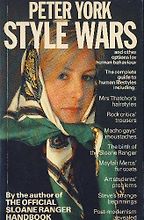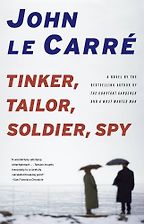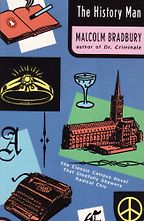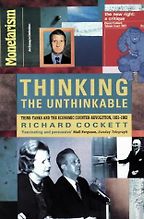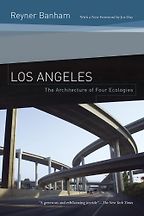In your recent book on the 70s, When the Lights Went Out, you say that Peter York is an astute social critic. Your first choice is his book, Style Wars. He’s well-known as an observer of the 80s. What does he reveal about the previous decade?
Everyone associates him with the 80s and sees him as an apologist for its excesses. But that’s not quite right. He started writing for GQ in the early 70s, which was when he made his name. What you get from Style Wars is the sense that the 70s was great fun for many people, especially in London. That was quite a surprise when I first read the book 20 years ago. The 70s was notorious for being a dismal period. And that’s certainly the view I had of it until my twenties. The idea that even in the 70s there were cool people in London architecture, fashion and pop music, all having the best time, was a revelation. As was the fact that people had lots of money, which again is not the traditional picture.
Once I started reading Style Wars, I realised there was something else going on. It wasn’t necessarily political. But it was a vibrant culture, full of visual energy. Many of the people York writes about had tons of disposable income. They weren’t all the old aristocracy.
York’s methodology is fascinating. What he did in the 70s was an English version of Tom Wolfe: this kind of zany, insider prose that takes everyday life seriously. But while he was clearly influenced by Wolfe’s work in the 60s, York’s writing is distinctly English in style.
We’ll return to the cultural relationship between England and the United States later. But what struck me about your discussion of York in your book is his focus on social fragmentation and paranoia. That brings us neatly to your second book, John le Carré’s Tinker, Tailor, Soldier, Spy. How did the Cold-War anxieties it evokes echo the domestic agenda of the 70s?
I’m a little suspicious of the ‘dark gothic 70s’ view, as I call it. The received wisdom should be challenged. It was clearly a time of anxiety and paranoia. But that atmosphere always assumes exaggerated form in newspaper leaders and magazine articles, because people like gothic things. You can find them in any decade if you want to write a gothic book. Even in the 90s, not a particularly dark time. But I find the darkness in le Carré particularly interesting because it’s quite melancholic. It evokes a sadness about Britain and the establishment at that time. There’s a sense of the world closing in. He really captures that in the book.
The world of the intelligence services is one eternally fraught with reactionary fears of national decline. Is it possible, through the extremes of paranoia they represent, to read something valuable about its more pervasive presence?
There’s a clear sense that the opportunities for the British elite, broadly described, are narrowing in the 70s. A lot of its gothic atmosphere comes from the fact that if you were writing for a newspaper or the intelligence services, then the empire is no longer an arena in which you can operate. It was the first decade without that imperial scope and the possibilities afforded by the EEC were not yet apparent. These were bleak years for the elite.
For many people not part of it, opportunities opened up in terms of what they could buy, things they could do, sexual mores. Many were quite positive about the 70s so there was quite a distinction between the two groups. That doesn’t mean the elite’s pessimism should be discounted. It had a very powerful influence, making the gothic the dominant flavour of the media at the time, particularly in newspapers. Le Carré really gets the sadness of that. But I like the way his spies are also quite cynical about the political right. They would probably side with the right but they are not stereotypical, Wilson-bashing spooks. They are a little more nuanced.
Indeed, in your assessment of the 70s, as well as the reds-under-the-bed fears there are also subversive elements from the political right of equal concern. Are they associated with the intelligence services?
Yes, to a degree. Certainly, Wilson was undermined by people in the intelligence services, as has now been documented in the official history of MI5. But bear in mind that it kept files on a huge number of people in the 70s – almost as many as the Stasi kept in the former East Germany. They had files on all kinds of trade-union activists, including Peter Mandelson and Harriet Harman, and other centre-left figures. So there was certainly a sense in which the spooks were on the side of the right-wing fringe. Actually, most people I looked into who were active on that fringe weren’t closely connected with the intelligence services. They were people more associated with the fringes of the Tory party, anti-tax groups or ratepayer-rights organisations. Or they were libertarian students. Just as I think there’s too much gothic in our view of the 70s, there’s also too strong a sense of the ‘spooky 70s’. Much of the interesting politics on the right had nothing to do with the security services. But people’s attention is always drawn in that direction. I wouldn’t want to give them a monopoly of control over the fringe-right.
Your third choice, Malcolm Bradbury’s The History Man, deals in a comical way with domestic subversion and the education establishment – how the insurgents took over the asylum. Approaching it afresh now, what does a reader need to know to appreciate its satire, and to what extent should it be read as social history?
I think The History Man is actually quite detailed social history. It’s meant to be about the early 70s. But it was published in the mid-70s and perhaps its picture of the early part of the decade is too dominated by concerns with the political left. I think the left’s real hold on the universities wasn’t really established until later in the 70s. It probably reached a peak in the early to mid-80s. But the novel paints a detailed portrait of the period. One element that I think is especially interesting, but not much talked about, is that the book’s central character, Howard Kirk, is a consumer par excellence. He and his wife belong to the Habitat-owning classes. They like wine, European things and have a Georgian house in a dilapidated terrace that they gentrify. I think his significance is as much a part of the new middle-class consumption as with him being on the left.
You talk about Kirk as an opportunist. But you also suggest he epitomises the kind of hypocrisy that allows consumerist ideology to co-exist with the appearance of political radicalism.
He’s certainly an opportunist but I’m not sure it’s quite hypocrisy. It’s an interest in what he sees as modernity. Modernity involves ideas from the revolutionary left, but it’s also about having nice wine. They go together. There were tremendous tensions, but quite a few interesting people on the left tried to marry the two, like those who conceived and designed Milton Keynes. Paternalistic radical socialists who thought that, in the future, everyone should have a double garage and nice living-room furniture. They were trying to marry individualist consumerism with what they still saw as a socialist project. Now maybe those two things can never be married. But some of the more thoughtful people on the left at the time were savvy enough to see that consumerism could be a strengthening force in a more equal Britain. Look at Habitat catalogues from the 70s: they are full of mixed-race couples in bed together. There was an overt radical message in some of the consumerism at the time. Although Howard Kirk is a comic figure, and in some ways a hypocrite, I think he represents that.
It’s interesting how the passage of time changes the perception of characters in a novel like The History Man.
Yes. I think it depends when you read it. I read it when the left was marginalised and in retreat so I didn’t see Kirk as an ogre. I thought, God, this is a time when people on the left could have a nice job, a nice house, nice wine, and still believe in revolution. Whereas from the 80s perspective I imagine you could see him as an ogre. Many people at the time perceived the socialism that Kirk ostensibly espoused as being in the ascendant. It was a much greater threat and worthy of satire. He’s a bully. But if you read the book any time after 1990, he doesn’t seem quite as big a bully. You know that people like him were marginalised and on the run.
You write and talk about Peter York recognising the embryonic 80s in the previous decade. In your next choice, Richard Cockett’s Thinking the Unthinkable, the neo-liberal counter-revolution is revealed as having deeper roots than one imagines. The book’s subtitle is Think-Tanks and the Economic Counter-Revolution, 1931 to 1983. So there’s a very long tradition of build-up to this moment.
What Cockett spots, which very few other writers on the 70s spot, is that the roots of what happened on the political right went back a long way. The neo-liberal counter-revolution, and a pro-market anti-trade union attitude, built up from the end of World War Two, if not earlier. You could argue that the counter-revolution happened before the revolution itself. That it developed through the 50s and 60s, with the radical right seen as ridiculous for quite some time, until it found its moment in the 70s. These movements often build slowly; they can take decades to achieve a head of steam and win over enough converts. Cockett really anatomises that. It sounds like an incredibly boring book if you read the subtitle. But it’s very readable.
He also shows you the weakness of the left in Britain, even at its supposed zenith in the 70s, and the long-standing strength of the reaction against it. Even when Attlee was building the welfare state, the people who would try to dismantle it were setting up think-tanks. There was never a moment when the reaction against social democracy was not underway.
Five Books interviews are expensive to produce. If you're enjoying this interview, please support us by donating a small amount.
Does the book have more relevance now, at a time when neo-liberalism is facing many questions? Does its lineage reveal the inherent flaws of the ideology?
I think it does a little. Interestingly, Cockett thinks Thatcher and the advocates of the free market took power in Britain almost too late – that, by 1979, Britain already had such economic problems that the economy couldn’t be transformed. Had they taken power in the 50s or 60s they might have had more impact. He also argues that social democracy in the late 70s had rooted itself so firmly in the civil service and in society as a whole, that Thatcher couldn’t do things like privatise the NHS or the Post Office. I don’t know if I agree. But it’s a very interesting notion that Thatcherism may have happened too late from the point of view of the right. He also says we shouldn’t be impatient about the current state of the debate on the left, because the great response to the Thatcher era is possibly only gestating now.
Do you have a sense of where it is happening?
No. I’ve looked quite hard at this when writing articles for the Guardian. These things are always difficult to spot. Unless you had fairly esoteric interests in the 40s, you probably wouldn’t have spotted the free-marketeers getting their thing together in Switzerland. They were bow-tied figures of derision. No, I don’t quite see it yet. I guess we have to be patient.
Staying with the roots of radicalism – in this case, urban design – your final book is Reyner Banham’s Los Angeles: The Architecture of Four Ecologies. It’s about new ways of looking at the city.
I’m very interested in Los Angeles, my favourite city apart from London. I’ve been there many times and find it fascinating that it was the fashionable urban prototype of the late 60s. Banham’s book epitomises that and helped create the idea. It’s about the new consumerism and whether it can be accommodated within a society that is still relatively just. He’s not a Thatcherite. He may like people to buy nice things, but he doesn’t want gated communities or a tough, Murdoch-style future.
So it’s a critique of Los Angeles as well. But it doesn’t take the radical line of someone like Mike Davis, who described the city as a neo-liberal utopia.
Banham celebrates Los Angeles much more than Davis. But, like Peter York, this book’s appeal to me is as much to do with its style as its content. It’s freewheeling and observational about the texture of life: he jumps from very grand, famous buildings to petrol stations. I often try to do that in my own writing – to be quite intensely descriptive and dart between high and low politics regardless of the barrier. Banham is an Englishman from Norfolk. Stylistically, he’s quite posh. At the same time, when confronted with a petrol station, he can really make it come alive by writing about it without any snobbery. That was a big influence on my writing.
Many people were influenced by Los Angeles. It seems absurd now, because we see it as a city of the past and an environmental disaster. But it wasn’t seen like that then. There was a tremendous British interest in America in the 70s. People think the 80s was the time we were really Americanised. But I think fashion designers, architects and other creative types looked to U.S. culture the decade before. Again, it’s the 80s in embryo. And post-modernity, too.
Get the weekly Five Books newsletter
Could the common theme of your choice of books be summarised as ‘the 70s you don’t know’?
Yes, to an extent I’ve used the books to underline my own argument. I haven’t chosen a conventional political book. Without being arrogant, that’s possibly because I didn’t want to write a conventional political book either – even though a lot of them are brilliantly researched. The kind of non-fiction I like is when people take an unorthodox approach to serious material. Some of these books are like that.
Do you sense any change in the appetite of the reading public? Do they want something a little bit different from straight history?
There are signs of that. But because there isn’t that new-journalist tradition in Britain that there still is in America, people don’t know what genre you’re in if you write about history in a descriptive, past-and-present way.Too many non-fiction books, though brilliantly researched, don’t take much pleasure in the text. I’m not saying I’ve got the answers. But I’ve often tried, for example, to vary the texture so that densely researched sections contrast with more impressionistic passages. I think that’s an honest way of approaching the material. You’re writing about the past from your own era. Not mentioning that at all, ever, is missing something. Even in a lot of academic writing, where it all appears to have the same level of research, one page might have one footnote and another 20. There’s a pretence that every sentence has a source; they often don’t. I hope the reading public are getting better at spotting these more ‘hybridised’ books. I think it’s a slow process.
Five Books aims to keep its book recommendations and interviews up to date. If you are the interviewee and would like to update your choice of books (or even just what you say about them) please email us at [email protected]
